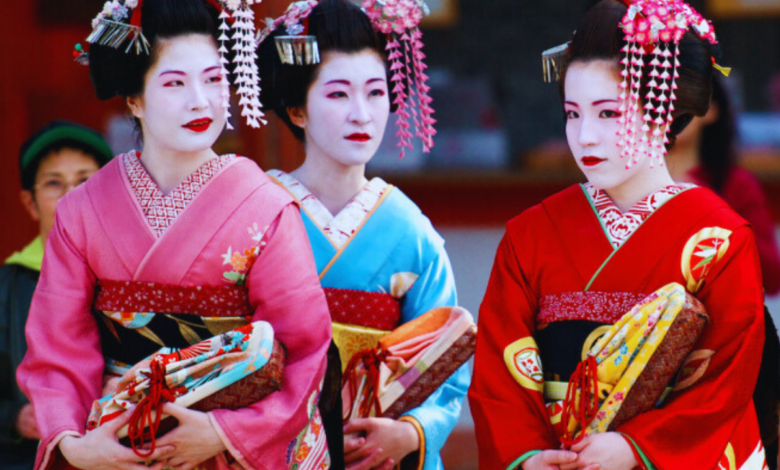Tokyo Japanese Lifestyle: A Unique Way of Living in Japan

Tokyo, Japan’s bustling capital, is a city that thrives at the intersection of history and the future, where ancient traditions coexist harmoniously with cutting-edge technology. As one of the most influential cities in the world, Tokyo has earned its place as a global leader not just in terms of economic power, but also as a cultural hub that defines the very essence of Japanese lifestyle. The Tokyo Japanese lifestyle is a striking reflection of this dynamic fusion, a seamless blend of timeless customs and forward-thinking innovation. Whether it’s the stillness of a tea ceremony or the high-tech sophistication of an automated home, Tokyo’s lifestyle is built on a foundation of respect for its cultural roots while embracing the fast-paced evolution of modern living. What makes Tokyo truly unique is how it effortlessly balances tradition with the ever-evolving trends of the modern world. From its iconic skyscrapers to serene gardens, Tokyo offers a lifestyle that is as diverse as it is rich in history.
At the core of Tokyo’s lifestyle lies an intricate web of practices that shape the daily lives of its residents. Tokyoites, known for their resilience and dedication, have created a way of life that values efficiency, social harmony, and a strong sense of community. It is a city where individuals are constantly striving for excellence, yet they maintain deep respect for their cultural heritage and the natural environment that surrounds them. I will explore the various facets of the Tokyo Japanese lifestyle, focusing on daily routines, work culture, fashion, cuisine, and social life.
Introduction to the Tokyo Japanese Lifestyle
The lifestyle in Tokyo is a fascinating blend of tradition and innovation, constantly evolving as the city adapts to modern advancements while honoring its rich cultural heritage. Unlike many other global cities, Tokyoites integrate traditional Japanese values, such as respect for elders, reverence for nature, and a focus on social harmony, into their fast-paced, urban lives.
In this vibrant metropolis, you can experience both the excitement of cutting-edge technology and the peace found in serene parks, tranquil gardens, and historical temples. Living in Tokyo means embracing this duality, where the hustle and bustle of city life coexist with moments of calm reflection. Whether you’re a local or a visitor, Tokyo’s unique lifestyle offers something special for everyone, inviting them to experience the best of both worlds.
Overview of Tokyo’s Lifestyle Elements
Tokyo’s lifestyle is a dynamic blend of tradition and modernity, where ancient customs coexist with cutting-edge technology. Daily life in Tokyo is marked by efficiency, respect, and innovation, from work culture to social interactions. Fashion, food, and leisure all reflect the city’s diverse influences, making it a unique and vibrant place to live. The seamless integration of tradition into everyday life gives Tokyo its distinctive charm and character.
| Aspect | Description |
| Work Culture | Hardworking, long hours, dedication to excellence |
| Fashion | Trendy, minimalist, and modern with traditional touches |
| Cuisine | Sushi, ramen, tempura, and street food |
| Social Etiquette | Respectful, quiet, formal in professional settings |
| Technology | Cutting-edge innovation, smart homes, robotics |
| Public Transport | Efficient, punctual, extensive rail network |
Traditional Influences on the Tokyo Lifestyle
One of the defining features of the Tokyo Japanese lifestyle is the seamless integration of traditional values into everyday living. Despite Tokyo being a bustling global metropolis, aspects of traditional Japanese culture remain deeply embedded in the daily lives of its residents. Whether it’s the reverence for nature, respect for hierarchy, or the importance of community, Tokyoites continue to uphold practices that have been passed down through generations. This blend of modernity and tradition gives Tokyo a unique cultural identity that shapes the way people live, work, and interact with one another.
Cultural Heritage and Rituals
Traditional Japanese customs, such as tea ceremonies, calligraphy, and flower arranging (ikebana), are practices many Tokyoites continue to embrace. The city is home to numerous shrines and temples where residents participate in religious rituals, offering prayers for good fortune, health, and prosperity.Festivals in Tokyo Tokyo celebrates many traditional festivals (matsuri) throughout the year, such as the famous Asakusa Sanja Matsuri, which features parades, traditional music, and food. These festivals are a reminder of Tokyo’s rich cultural history.
The Influence of Nature in Tokyo
While Tokyo is a bustling urban hub, it is also known for its green spaces and gardens. Parks like Ueno Park and Shinjuku Gyoen provide residents and visitors a peaceful escape from the urban hustle. These areas are perfect for enjoying the beauty of nature, especially during cherry blossom season.
Tokyo’s Work Culture: A Balanced Approach
Work culture in Tokyo is known for its intensity, characterized by long working hours and a strong emphasis on dedication and excellence. Employees are often expected to go above and beyond in their roles, which has created a highly competitive environment. However, in recent years, there has been a growing focus on improving work-life balance, as companies recognize the negative effects of overwork.
The concept of karoshi, or death by overwork, has brought attention to the need for change in the workplace. As a result, more initiatives have been introduced to promote employee well-being, such as flexible work hours and mental health support. Despite the challenges, Tokyo’s work culture is evolving, striving for a healthier balance between professional commitment and personal life.
Tokyo Work Culture vs. Global Work Culture
Tokyo’s work culture is known for its intense commitment, long hours, and hierarchy, with employees often expected to prioritize their job above all else. In contrast, global work cultures are increasingly emphasizing flexibility, work-life balance, and a more relaxed approach to work hours. While Tokyo is shifting towards better work-life balance, many countries prioritize employee well-being as a key factor. This cultural difference highlights the unique challenges and changes occurring in Tokyo’s work environment.
| Aspect | Tokyo Work Culture | Global Work Culture |
| Work Hours | Long hours, overtime expected | Varies widely, but often 9-5 |
| Workplace Atmosphere | Formal, hierarchical, respectful | More casual, collaborative |
| Work-life Balance | Challenging but improving | Focus on balance and flexibility |
| Teamwork | Highly valued, group-centric | Often individualistic |
| Employee Loyalty | Strong sense of loyalty to company | Less pronounced |
While working in Tokyo can be demanding, there’s also a great emphasis on teamwork, respect, and dedication. Tokyoites take pride in their work and often go above and beyond to ensure that their tasks are completed to the highest standards.
Fashion: A Stylish Blend of Tradition and Innovation
Tokyo’s fashion scene is a vibrant reflection of the city itself—dynamic, innovative, and always ahead of the curve. Renowned for its avant-garde and eclectic style, Tokyo is home to fashion-forward individuals who seamlessly blend traditional Japanese attire with modern trends, creating a distinctive aesthetic that stands out globally. The city’s fashion landscape is defined by its versatility, as Tokyoites effortlessly combine high fashion, streetwear, and cultural garments to create stylish yet functional outfits. Whether it’s the contemporary allure of minimalist designs or the bold statements made by Tokyo’s subcultures, the city’s fashion represents a unique fusion of the old and new.
Traditional Clothing
Despite Tokyo’s reputation as a modern metropolis, traditional Japanese clothing still holds significant cultural value and is worn on special occasions. The kimono, an iconic piece of Japanese heritage, remains a symbol of elegance and grace. This traditional attire is often worn during formal events, such as weddings, tea ceremonies, and traditional festivals like the Cherry Blossom festival. Kimono designs are often intricate, showcasing vibrant colors and stunning patterns that reflect the season or the wearer’s personal taste.
Another traditional garment, the yukata, is a more casual version of the kimono and is commonly worn during summer festivals or fireworks displays. Though both garments have a long history, they continue to play an important role in contemporary Tokyo life, reminding the city of its rich cultural roots. In Tokyo, it’s not uncommon to see individuals wearing traditional attire for special events, blending the timeless beauty of these garments with the urban energy of the modern city.
Modern Fashion
Tokyo’s modern fashion scene is where innovation and individuality shine, and it is constantly evolving to reflect the diverse tastes and styles of its residents. Street fashion in Tokyo is often associated with vibrant subcultures, each with its own unique identity. Harajuku, one of the city’s most famous districts for youth fashion, is home to cutting-edge trends, from eclectic, colorful outfits to more avant-garde, punk-inspired looks.
In contrast, districts like Shibuya showcase a more minimalist, sleek, and urban aesthetic, where the emphasis is on clean lines, muted tones, and subtle yet stylish pieces. Tokyoites are known for their fashion-forward thinking, never shying away from mixing classic styles with contemporary elements. Whether it’s pairing a vintage kimono with a modern jacket or wearing casual streetwear with designer accessories, Tokyo’s fashionistas make it clear that personal style is about experimentation and self-expression.
Popular Fashion Areas in Tokyo
Tokyo is a global fashion capital, offering an exciting mix of styles that cater to every preference. From high-end luxury to bold and experimental streetwear, the city’s fashion districts showcase a dynamic blend of tradition and modern trends. Whether you’re drawn to elegant designer brands, trendy urban fashion, or unique subcultures, Tokyo has it all. Harajuku is known for its colorful and eclectic street fashion, while Shibuya sets the latest youth trends with stylish boutiques. For those seeking sophistication, Ginza offers an upscale shopping experience with world-renowned luxury brands. No matter your style, Tokyo’s fashion scene is both diverse and ever-evolving.
Harajuku: The Hub of Eclectic Street Fashion
Harajuku is world-famous for its vibrant and experimental street fashion, where bold colors, unique accessories, and creative outfits come together. This district, especially Takeshita Street, is home to independent boutiques, vintage shops, and stores specializing in kawaii (cute) fashion. Harajuku’s fashion subcultures, such as Lolita, punk, and cosplay-inspired outfits, make it one of the most exciting places for those looking to express themselves through clothing.
Shibuya: The Trendsetter’s Paradise
Shibuya is the heartbeat of Tokyo’s youth fashion scene, offering a trendy and fast-changing style landscape. This area is known for its fashionable boutiques, department stores, and cutting-edge streetwear brands. Shibuya 109, a landmark shopping mall, is a must-visit destination for trendy and youthful fashion. The district attracts young fashion enthusiasts who embrace contemporary Japanese styles, from sleek minimalist looks to bold and edgy outfits.
Ginza The Epitome of Luxury and Elegance
For those seeking high-end fashion, Ginza is Tokyo’s premier luxury shopping district. This upscale area is home to flagship stores of world-renowned designer brands such as Chanel, Louis Vuitton, and Gucci, alongside traditional Japanese fashion houses. Ginza’s streets exude sophistication, with elegant boutiques, stylish department stores, and exclusive shopping experiences. The area attracts fashion-conscious individuals who appreciate timeless elegance and high-quality craftsmanship.
Tokyo Cuisine: A Culinary Paradise
Tokyo is not only a global hub for technology and fashion, but it is also a culinary paradise that attracts food lovers from around the world. With its diverse food offerings and an impressive array of dining experiences, Tokyo ranks as one of the best cities in the world for food enthusiasts. The city’s cuisine is a reflection of its rich cultural heritage, blending time-honored traditions with innovative new concepts. From the delicate flavors of traditional Japanese dishes to the cutting-edge fusion cuisine, Tokyo’s food scene is an integral part of its vibrant lifestyle. Whether you’re sampling street food in bustling markets or enjoying gourmet meals at Michelin-starred restaurants, Tokyo’s culinary world is nothing short of extraordinary.
Traditional Japanese Cuisine
At the heart of Tokyo’s culinary offerings lies traditional Japanese cuisine, which emphasizes simplicity, seasonality, and the use of fresh, high-quality ingredients. Dishes like sushi, sashimi, and tempura are staples of the city’s food culture. Sushi, a dish made with vinegared rice and fresh fish, is a beloved Tokyo specialty. Tokyo is home to numerous sushi bars, from affordable conveyor-belt sushi restaurants to high-end establishments where skilled chefs create exquisite sushi pieces. Sashimi, which consists of raw, thinly sliced fish, is often served alongside sushi and highlights the freshness of the fish used.
Tempura, battered and deep-fried seafood or vegetables, is another iconic dish in Tokyo, known for its light and crispy texture. These dishes, while traditional, often require precision and expertise, with chefs taking great care in selecting ingredients and preparing them to perfection.The Tsukiji Fish Market, now relocated to Toyosu, is one of Tokyo’s most famous food destinations. This bustling market is a haven for seafood lovers, offering a variety of fresh fish and seafood that are sold directly to restaurants and consumers. Visitors can explore the market and enjoy the freshest sushi and sashimi at the many restaurants nearby.
Modern Culinary Trends
While traditional Japanese cuisine remains the backbone of Tokyo’s food culture, the city has also become a leader in contemporary culinary trends. Tokyo is home to a vibrant modern food scene, with restaurants that blend traditional flavors with innovative techniques and ingredients. Many of the world’s most renowned Michelin-starred restaurants can be found in Tokyo, offering gourmet dining experiences that push the boundaries of culinary creativity.
These fine dining establishments often fuse Japanese ingredients with global flavors, creating unique and exciting new dishes that reflect Tokyo’s cosmopolitan influence.Fusion cuisine has become increasingly popular in the city, with chefs experimenting with international ingredients and cooking styles to create entirely new flavors. From upscale sushi with Mediterranean influences to ramen dishes with European twists, Tokyo’s culinary creativity is constantly evolving.
Social Life: The Tokyo Social Etiquette
Tokyoites are known for their polite, reserved, and respectful nature, which greatly influences how social interactions unfold in the city. Social etiquette and respect for others are deeply ingrained in daily life and serve as the foundation for both personal and professional relationships. The Tokyo Japanese lifestyle is shaped by this culture of politeness, with people maintaining a sense of decorum and understanding in various social contexts. The way individuals communicate, greet one another, and even navigate public spaces reflects the strong cultural emphasis on respect and hierarchy.
Politeness and Respect
In Tokyo, politeness is more than just a social norm—it is a core value that governs interactions. One of the most notable aspects of Tokyo social etiquette is the practice of bowing. Whether in a casual or formal setting, bowing serves as a sign of respect and acknowledgment. Tokyoites also use polite and formal language, especially when speaking with elders, superiors, or strangers. This politeness extends beyond verbal interactions and can be seen in non-verbal cues such as offering seats to the elderly, bowing before entering homes, or even when greeting colleagues in the workplace.
Hierarchy plays a significant role in Tokyo’s social dynamics, particularly in professional environments. In the workplace, there is a clear respect for seniority, with junior employees expected to show deference to their senior counterparts. The use of honorific titles and respectful language, such as “san” after a person’s name, further emphasizes this hierarchy. Personal relationships, though friendly and warm, are often navigated with careful attention to these social codes, ensuring harmony and avoiding conflict.
Leisure and Entertainment
Despite the emphasis on professionalism and work ethic, Tokyo offers a vibrant range of leisure and entertainment options where Tokyoites can unwind and enjoy their personal lives. The city is home to a wide array of entertainment venues catering to various interests and tastes. Karaoke bars, a beloved Japanese pastime, offer a fun and relaxed atmosphere where friends and colleagues can gather, sing, and bond over shared experiences. These establishments are especially popular for after-work socializing and creating an outlet for relaxation.
Izakayas, traditional Japanese pubs, are another favorite hangout spot for Tokyoites. These informal, cozy environments allow individuals to enjoy drinks, casual food, and good company. Tokyo’s nightlife scene is diverse, with districts like Roppongi offering everything from high-end bars and clubs to live music venues. Tokyoites, even with their demanding work schedules, prioritize leisure activities to relax and connect with friends, family, and colleagues.
Modern Technology and Smart Living in Tokyo
Tokyo stands as one of the world’s most technologically advanced cities, with innovation deeply embedded in its fabric. The city is a leader in integrating cutting-edge technology into daily life, from personal gadgets to smart infrastructure. Residents, known as Tokyoites, are quick to adopt the latest tech trends, making their lives more efficient and convenient. Whether it’s smart homes with AI systems or high-tech appliances, technology improves both productivity and sustainability.
The use of automation is widespread, enhancing comfort and reducing energy consumption. Tokyo’s residents not only embrace new technology but also rely on it for seamless daily living, making the city a global pioneer in smart living. From robotics to digital services, technology helps streamline urban experiences, reshaping traditional lifestyles for modern needs. As the city continues to innovate, it maintains its reputation as a technological hub that leads the world in smart living solutions.
Smart Homes and Robotics
The concept of smart homes has taken root in Tokyo, with many residents living in technologically sophisticated spaces that feature artificial intelligence (AI) systems, smart appliances, and advanced automation. These homes are equipped with devices that allow residents to control lighting, temperature, security, and even kitchen appliances through voice commands or smartphone apps. The integration of AI helps optimize energy usage, making homes more eco-friendly and efficient.
In addition to smart homes, robotics play an increasingly significant role in daily life. Tokyo is leading the way in the use of robots for various practical purposes. For example, robots are used in restaurants to greet customers, serve food, and even prepare meals in some cases. In retail environments, robots assist with inventory management and customer service. Additionally, robots are also making their way into households, where they assist with chores such as cleaning floors, delivering items, or helping with elderly care. This integration of robotics significantly enhances both convenience and productivity for Tokyo residents.
Tech in Daily Life
For Tokyoites, technology is not just a convenience but an essential part of daily living. The city is known for its ultra-fast internet and cutting-edge connectivity, which power everything from online shopping to entertainment and remote work. Public transportation, including the world-renowned rail system, benefits from the use of technology, with real-time tracking and digital ticketing making travel more efficient.
Cashless payments have become the norm in Tokyo, with a wide range of digital payment options, including mobile wallets, credit cards, and QR code-based transactions. This trend towards a cashless society has made transactions smoother, safer, and more efficient. Additionally, digital signage is prevalent throughout the city, providing real-time updates on everything from train schedules to promotions in shopping malls.
Wrapping up
The Tokyo’s Japanese,s lifestyle is an intricate tapestry of ancient customs and modern advancements, a reflection of the city’s ability to adapt while staying true to its roots. From the way Tokyoites approach their work and social lives to how they incorporate technology and fashion into their daily routines, it is clear that the city offers a lifestyle that is both fast-paced and deeply grounded in tradition. The commitment to excellence in all aspects of life, the respect for social harmony, and the seamless blending of old and new make Tokyo a city like no other. It is a place where innovation and heritage coexist, where the future is always being shaped while the past is always honored.
For those lucky enough to experience the Tokyo’s Japanese,s lifestyle, it offers a unique opportunity to immerse oneself in a culture that is as forward-thinking as it is deeply connected to its history.Living in Tokyo’s means embracing this delicate balance: a lifestyle that demands both hard work and relaxation, technology and nature, individualism and community. Whether you’re a resident or a visitor, Tokyo’s lifestyle presents a fascinating way of life that can be simultaneously overwhelming and inspiring. It is a city where tradition and modernity don’t just coexist; they enhance one another, creating a way of living that is as unique as the city itself.
FAQs
How does the Tokyo Japanese lifestyle incorporate traditional values?
Tokyo’s lifestyle seamlessly integrates traditional values such as respect for elders, adherence to customs, and appreciation for nature. Despite being a high-tech metropolis, traditions like bowing, tea ceremonies, and seasonal festivals remain an important part of daily life. Social harmony, politeness, and mindfulness are deeply rooted in the culture. These values coexist with modern advancements, creating a balanced way of life.
What is the work culture like in Tokyo?
The work culture in Tokyo is intense, with long hours and high expectations for dedication, teamwork, and loyalty. Hierarchical structures are common in workplaces, emphasizing respect for seniority and collective success. However, recent efforts have been made to improve work-life balance, such as flexible work hours and remote work options. Despite its challenges, Tokyo’s work culture is evolving to support employee well-being.
How does fashion in Tokyo blend modern and traditional styles?
Tokyo fashion is a unique blend of traditional and modern influences, where classic garments like kimono and yukata are often styled with contemporary pieces. Street fashion in areas like Harajuku showcases bold and experimental styles, while districts like Ginza highlight elegant and luxury fashion. Many designers incorporate traditional patterns and fabrics into modern silhouettes, creating a seamless fusion of old and new. This mix makes Tokyo one of the most innovative fashion capitals in the world.
What types of food can I expect in Tokyo?
Tokyo’s culinary scene is diverse, offering everything from traditional sushi, ramen, and tempura to modern fusion dishes. Michelin-starred restaurants, casual izakayas, and vibrant street food markets provide endless options for food lovers. Tokyo is also known for its seasonal ingredients and presentation, making every meal an experience. Whether you prefer fine dining or quick bites, Tokyo has something to satisfy every palate.
How does technology influence the lifestyle in Tokyo?
Technology plays a crucial role in Tokyo’s lifestyle, making daily life more convenient and efficient. Smart homes, AI-powered devices, and high-speed internet are common in households. Robotics are used in restaurants, stores, and even healthcare, improving service and accessibility. Digital payments, automated public transport, and high-tech toilets further enhance the city’s futuristic way of living. Technology in Tokyo is not just about innovation—it’s about creating a more seamless and connected lifestyle.
What are the most popular fashion districts in Tokyo?
Tokyo has several famous fashion districts catering to different styles and preferences. Harajuku is known for its vibrant street fashion, where youth subcultures and creative designs thrive. Shibuya is home to trendy, urban styles with a mix of high-street and casual fashion. Ginza represents luxury fashion, featuring flagship stores of top designer brands and sophisticated styles. Each district showcases a different aspect of Tokyo’s ever-evolving fashion scene.
How do Tokyoites balance their busy schedules with social life?
Despite their demanding work schedules, Tokyoites prioritize social life by engaging in leisure activities such as dining at izakayas, karaoke nights, and shopping. Many unwind in cafés, parks, or onsens, enjoying moments of relaxation. Group activities, whether with coworkers or friends are common, strengthening social bonds. Tokyo’s lifestyle is fast-paced, but people make time for entertainment and meaningful connections.



